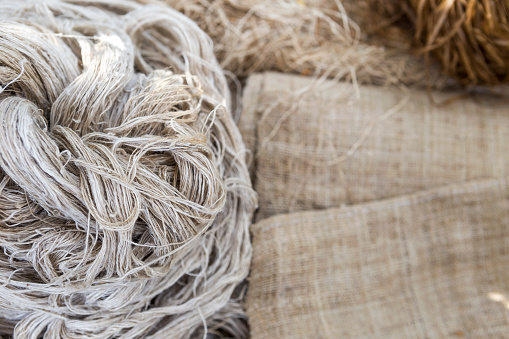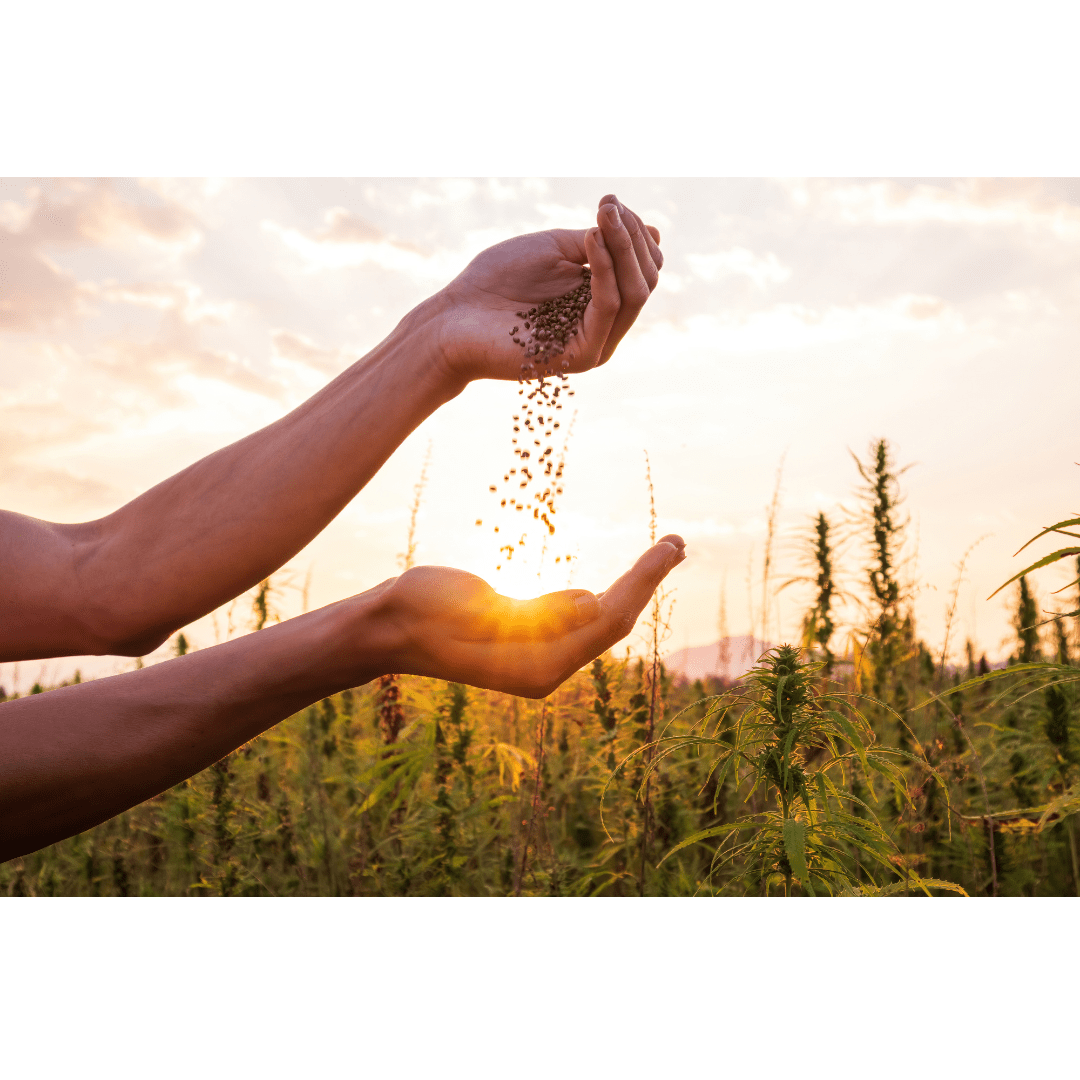A saying goes as, ‘Sustainable Development is a fundamental break that’s going to reshuffle the entire deck. There are companies today that are going to dominate in the future simply because they understand that.’
Cruelty is a part of human nature, but being cruel to Mother Nature is what seems to be our biggest mistake. Some say it is part and parcel of being born human on earth. Many differ.
So, to keep our future generation from going poor over natural resources, we must convert to more sustainable alternatives and let the conventional, remaining natural resources replenish, for the future humans to enjoy!
One of the best ways to adapt to sustainability is finding unconventional, less-polluting alternatives. One such option is ‘hemp farming’- the jack of all trades!
HEMP FARMING IS THE FUTURE!
Hemp or industrial hemp is a variation of the Cannabis sativa plant species that is cultivated particularly for industrial use. Cannabis! Might strike a chord, right? Yes, cannabis or popularly known as marijuana, is metaphorically the cousin of the hemp plant under the same plant family, Cannabis sativa. Marijuana or cannabis has a higher concentration of THC, which makes it an illegal psychoactive recreational drug, banned by a lot of countries.
However, hemp with a low concentration of THC and higher concentration of cannabidiol (CBD) is legal in India and many other countries. Cannabidiol or CBD reduces or eliminates its psychoactive effects.
Along with bamboo, hemp is one of the fastest growing plants on earth with fewer needs and maintenance. And, it is also one of the first plants spun into usable fiber 50, 000 years ago! Metaphorically, hemp is the diamond, which humankind found while looking for chunks of coal!
It can be refined into a wide variety of commercial products like paper, rope, textiles, clothing, biodegradable plastics, paint, medicines and sedatives, biofuel, food, and animal food. Fundamentally, everything that is made for and by human beings causes various kinds of pollution and heavy deforestation!
Industrial hemp offers sustainability and durability that its competitors do not. This, in addition to its low-sustenance and fewer needs, makes it a gem for reviving the condition of the poor farmers and even poorer economy!
Yet, here we are making it difficult for the government to legalize it and let it get cultivated without any restrictions, just because we can’t control our behavior and indulgences to use it for recreational purposes!
Farming hemp and processing hemp products noticeably keep the economic and environmental burden in check and even lower than its substitutes. Here are just a few economic and similarly environmental benefits that hemp introduces-
Hemp, unlike its alternatives, can be grown in various regions, and with fewer resources.
Cultivation of hemp in India is confined to industrial purposes or for horticultural use, with low THC. Hemp growth lasts roughly 100 days, giving a minimum of 2 harvests a year. Also, the plant grows very densely, providing farmers with more hemp per acre of farmland.
More production of hemp is equal to more income for the farmers! In addition to this, hemp plants can be grown in almost all terrain and soil, taking wastelands in use, reducing land wastage.
Garments made with hemp fiber are cost-efficient and tougher than cotton clothing!
Hemp fiber is 10x more sturdy than cotton, and remarkably resonates with linen in texture. The word ‘canvas’ was derived from the word ‘cannabis’, because ‘sail canvas’ was the first kind of cloth made out of hemp fiber.
Clothes made out of this particular kind of pure hemp fiber being durable adds to its merits and makes it useful for making ropes and sacks. For clothing, accessories, shoes, and home and pet wares, hemp is used, mixed with lyocell or alone.
Curbs a lot of water pollution.
Compared to cotton, the hemp plant’s water wastage is drastically better. It can take over 5,000 gallons of water to yield only 2.2 pounds of cotton. But, it takes less than 700 gallons of water to produce 2.2 pounds of hemp. This quality also contributes to the plant’s ability to grow in a diverse array of climates.
Hemp can put an end to deforestation!
Hemp-based materials that can be used in place of wood have much lower manufacturing costs. As an addition, hemp is stronger, lighter, and more sustainable than wood. While dry, the fibers can be compressed into thick-tight wood alternatives. Putting an end to cutting trees for making houses in rugged-mountainous regions.
The market for CBD or cannabidiol oil, extracted from the seed of the hemp plant.
This magic oil, CBD or cannabidiol oil is ready for remarkable growth in the industrial market in the coming years, so hemp farming will yield even more profits. According to PharmiWeb, the CBD oil market is said to blow to $1068.54 million by 2026.
CBD oil has therapeutic and health benefits for both humans and animals, treating a wide range of health issues from pains, and aches like arthritis to troubles like sleeplessness too. The ability of this plant to grow fast works as a merit for medical businesses to keep up with the growing demand.
A cheaper and better option for construction materials.
Hemp as a building material can create wonders. It is light, mold-resistant, breathable, making it useful in many ways! Hempcrete, heard about it? Yes, it is concrete-like hemp blocks. Making this requires skill, which means it can be a good way to reduce unemployment.
Similar to hempcrete, hemp plaster can be produced into variable colors, being manually pigmented. In all, its practical use in building construction can result in low energy consumption costs, more sustainability, and the creation of secondary level pollutants.
Hemp provides low-cost and environment-friendly bio-diesel
A biofuel called ‘Hempoline’ can be extracted from hemp’s oil in its seeds and stalks. Purified hemp oil can be used directly to power diesel engines and vehicles. It can be proposed as a replacement for non-renewable energy sources, which are typically the major air pollutants due to their toxic fuel residue. Making hemp-based diesel or vehicle fuel can benefit us both economically and environmentally. Hemp biofuel can eventually become one of the most viable sources of a sustainable alternative to fossil fuels.
Again! Hemp-based paper can destroy deforestation!
Hemp-made paper is lighter, brighter, and long-lived, which makes it a plus-point for the customers to purchase it seldom. As we know, hemp paper is naturally brighter than regular paper; it doesn’t cost bleaching it, and also doesn’t cost the environment with harmful toxins released into the Earth’s waterways by the paper factories.
Additionally, hemp paper can be recycled up to 8 times, 5 times more than the paper made out of the wood pulp. Though, making paper in the coming years might take research because no proper machine has been made to compress hemp to make paper.
Hemp offers better nutrients for food and animal feed.
Hemp seed is the real game here! Hemp oil can be extracted from its seeds and roots too. Hemp oil is very powerful and useful with its excellent source of protein and other health benefits. In fact, hemp oil supplies more protein than even soybeans.
This oil can be the favorite of all fitness freaks out there. It can be used to make much food and other products- also contain essential fatty acids and low levels of saturated fats.
Hemp-Farming can help farmers and agriculture make a comeback!
Compared to its other counterparts and substitutes, hemp farming is very cost-efficient, with even fewer resources needed. Hemp farming decreases the need for costly irrigating systems and cuts off the need for pesticides and weedicides. As we know, hemp grows densely, so it leaves hardly any space for weeds to sprout up, reducing the time, efforts and money farmers have to spend to eliminate and tend to weeds.
Growing hemp for CBD or CBG is a great way for farmers to gain a strong profit. According to a 2019 article in The French Toast, while farmers usually earn ₹15,200 for 1 acre of corn, some hemp farmers report earning triple of that!
Hemp can boost cultural handicrafts!
Hemp jewelry is the product of knotting hemp using the practice of macramé, being common among other types of stitches. The hemp twine comes in different colors and shapes. Hemp adornments can include watches, necklaces, bracelets, handbags, dolls, and other home adornments. Again, it can initiate employment and give a boost to native and tribal culture.
Hemp can be converted into biodegradable plastics
Hemp-based bioplastics are said to be a biodegradable alternative to regular plastic bags and can potentially replace PVC too! It can be used both in dry and damp conditions. Non-degradable plastics are the most hazardous soil eroding inventions of man. It doesn’t decompose with the soil disturbing the soil fertility balance. It takes millions of years to get decomposed into the soil, while it takes just a matter of 6 months to decompose the biodegradable plastics made with hemp, which in turn is beneficial for the soil itself!
On a global front, hemp can assist impoverished countries both economically and nutritionally.
Cultivating hemp can help the poor civilians of a country to be well-fed and healthier. Hemp being healthy, sustainable, and affordable can be the ‘need of the future’. It can also increase the low levels of employment and increase the reducing economy easily!
Hemp- Carbon Sequestration
Hemp has been shown to absorb more CO2 per hectare than any forest or commercial crop. One hectare of hemp plantation can absorb up to 15 tons of carbon dioxide. With its efficient carbon absorption rates and fast-growing rates, hemp is one of the fastest carbon dioxide-to-biomass converter tools available and has potential regarding climate solutions.
By efficiently sequestering carbon dioxide, the main greenhouse gas contributing to the warming of the planet, hemp farming helps to combat climate change at a larger and faster rate!
Other than these 14 perks of hemp farming, there are a lot of major merits that cultivating hemp can provide. It’s like killing two birds with a stone. Hemp farming can add to the economy and reduce the toxicity to the environment, which is what the world needs right now. Finding out alternative ways to the conventional sources of energy is the need of time. Hemp-farming is a win-win for both nature and human beings! Increasing employment, in turn, adds to the growth of the economy.
Luxury brands like Armani, Versace, Ralph Lauren, Donna Karan, and Calvin Klein have embraced hemp as a luxurious fabric and have signed consortiums to cultivate hemp in various countries.
Hemp farming is the method to undo our man-made mistakes. Cutting down trees, wasting water, polluting the environment, what mistakes haven’t human beings made, for their use?
Encouraging the cultivation of hemp can be the first step towards a better, pollution-free, wealthy and healthy world!



Recent Comments